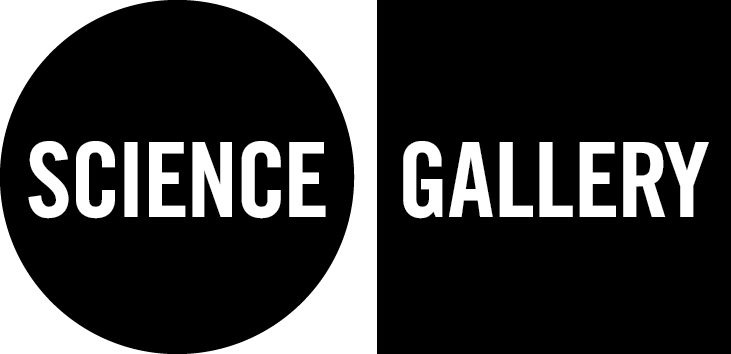What did we get up to at the World Economic Forum this year?
Our feet are firmly back on the ground here in Dublin after an exciting, meaningful and worthwhile week in Davos, Switzerland at the World Economic Forum 2017.
With the support of the Wellcome Trust, we were partnering with the World Economic Forum to engage world leaders on how to empower young people, and we really enjoyed our time there meeting old and new friends and reflecting with them on how we can enable young people’s creativity to meet the challenges of the Fourth Industrial Revolution. (Did you know that creativity was recently named in the top three most important skills to have in the future in this report?)
Humanae along the promenade in Davos
We instantly felt at home upon arriving in Davos and seeing the beautiful installation of Humanae along the promenade. Humanae is a project by Angélica Dass illustrating the diversity of skin colours while highlighting the absurdity and inaccuracy of racial stereotypes. Humanae featured in DESIGN AND VIOLENCE in Science Gallery Dublin, and Angélica became a good friend to Science Gallery in that time, so it was a real pleasure to see her and her inspiring work again.
Andrea chatting to game designer Tracy Fullerton
We were kept busy throughout the week, with our Executive Director Andrea Bandelli, who was invited as a Cultural Leader, facilitating several fascinating sessions throughout the week. Andrea looked at how technology is changing the human experience with game designer Tracy Fullerton, and discussed the hidden risk and opportunities of AI, augmented reality and our increasingly digitised lives with robotics designer David Hanson, artist Patrick Tresset, CEO of bioinformatics company EMOTIV Tan Le, and Dubai Future Foundation’s Noah Raford.
Meeting Sophia, the latest creation from Hanson Robotics. She talks and makes human expressions.
A lot of the conversations in the sessions and at the social events revolved around AI. Everybody seems to be almost taken aback by how fast and radical the impacts of AI are on our lives. Even Sergey Brin, the co-founder of Google, admitted he didn’t see it coming (watch his interview here). Japanese activist Joi Ito made a case that AI should be democratised, made available to everybody, and will.i.am pushed even further, pleading for a truly personal AI, and not in the hands of big corporations or media platforms. Once again Science Gallery Dublin have shown their knack for prescient timing, with their upcoming show exploring AI, HUMANS NEED NOT APPLY, opening in Dublin on Friday 10th February. (Website coming soon, at this link.)
Exploring creative education
The need to seriously address the inadequacy of the formal education system was echoed in several sessions and private conversations, with a loud and clear point that teaching STEM is not enough: creativity and critical thinking won’t be enabled by STEM alone. The arts and humanities are fundamental to enable and strengthen critical thinking, alongside more ‘liquid’ skills of social interaction, self confidence, humbleness and awareness.
Crown Princess Mette-Marit of Norway getting her portrait drawn
Two exhibition pieces from the SEEING exhibition in Science Gallery Dublin were also invited to be a part of the Davos meeting, taking pride of place at Benevolent Machine, an interactive exhibition space featuring lectures, installations and technologies that explore the impact of the Fourth Industrial Revolution. 3RNP (or, 3 Robots Named Paul) by Patrick Tresset and Peeping Hole by Kenichi Okada and Naoaki Fujimoto both proved to be a big hit with attendees, with some really interesting and inspiring people like the Crown Princess Mette-Marit of Norway, musician and maker Imogen Heap, senior Wellcome Trust advisor Clare Matterson, artist and Humanae creator Angélica Dass, and many more stopping by to peep through the mysterious hole and be drawn by Paul, Paul and Paul.
Crown Princess Mette-Marit of Norway's portraits
Imogen Heap's portraits
Angélica Dass' portraits
We particularly enjoyed the Global Science Outlook session while we were there, which explored the top issues on the global science agenda and looked at how will they be addressed over the coming year, along with enlightening insights on public engagement with science. You can watch that session here. (And keep an eye out for Andrea raising a great point at 42:30!)
The inspirational Afghan Women's Orchestra
Another highlight was the awe-inspiring Afghan Women’s Orchestra at the closing concert, whose beautiful performance demonstrates what it is to risk your life for culture and education – an incredible way to round out the week.
___________________
Want to be more equipped to talk about AI and the future consequences on the human race? Check out HUMANS NEED NOT APPLY at Science Gallery Dublin, launching on Friday 10th February.
Want to check out what lies behind Peeping Hole for yourself? Or have your portrait drawn by three robots named Paul? SEEING will be at the Patricia and Phillip Frost Museum of Science from early March. Find out more about our touring shows.













